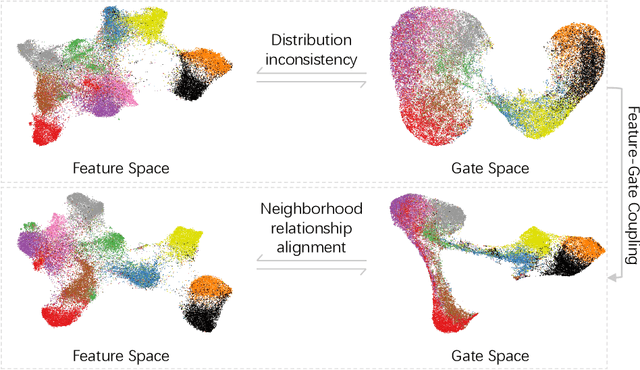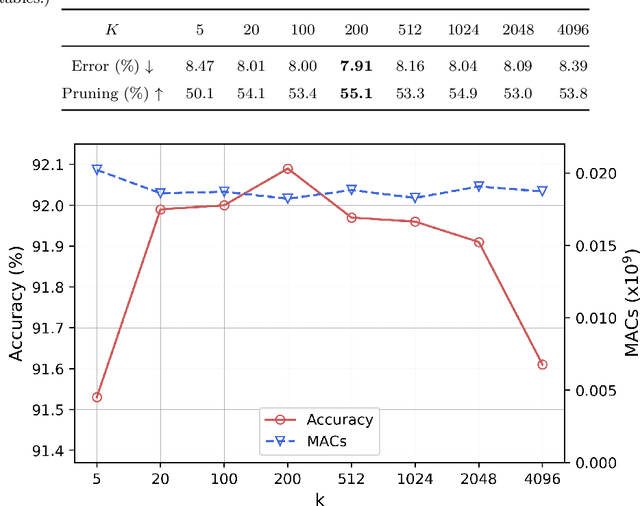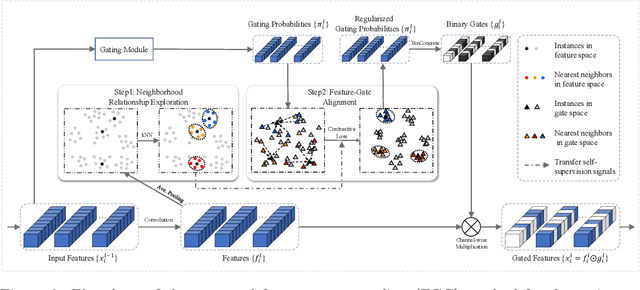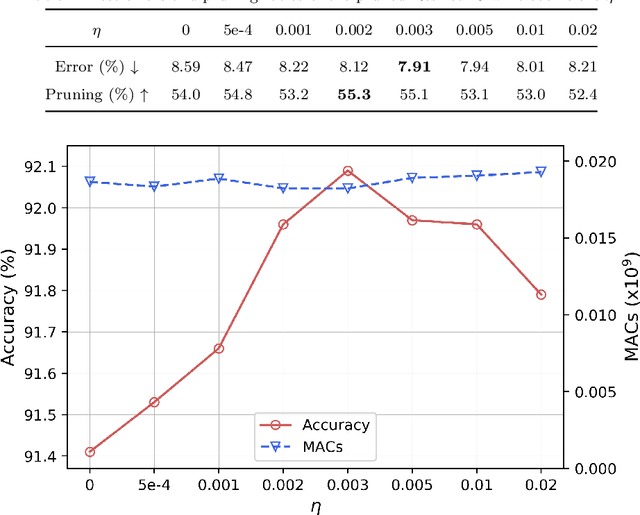Feature-Gate Coupling for Dynamic Network Pruning
Paper and Code
Nov 29, 2021



Gating modules have been widely explored in dynamic network pruning to reduce the run-time computational cost of deep neural networks while preserving the representation of features. Despite the substantial progress, existing methods remain ignoring the consistency between feature and gate distributions, which may lead to distortion of gated features. In this paper, we propose a feature-gate coupling (FGC) approach aiming to align distributions of features and gates. FGC is a plug-and-play module, which consists of two steps carried out in an iterative self-supervised manner. In the first step, FGC utilizes the $k$-Nearest Neighbor method in the feature space to explore instance neighborhood relationships, which are treated as self-supervisory signals. In the second step, FGC exploits contrastive learning to regularize gating modules with generated self-supervisory signals, leading to the alignment of instance neighborhood relationships within the feature and gate spaces. Experimental results validate that the proposed FGC method improves the baseline approach with significant margins, outperforming the state-of-the-arts with better accuracy-computation trade-off. Code is publicly available.
 Add to Chrome
Add to Chrome Add to Firefox
Add to Firefox Add to Edge
Add to Edge